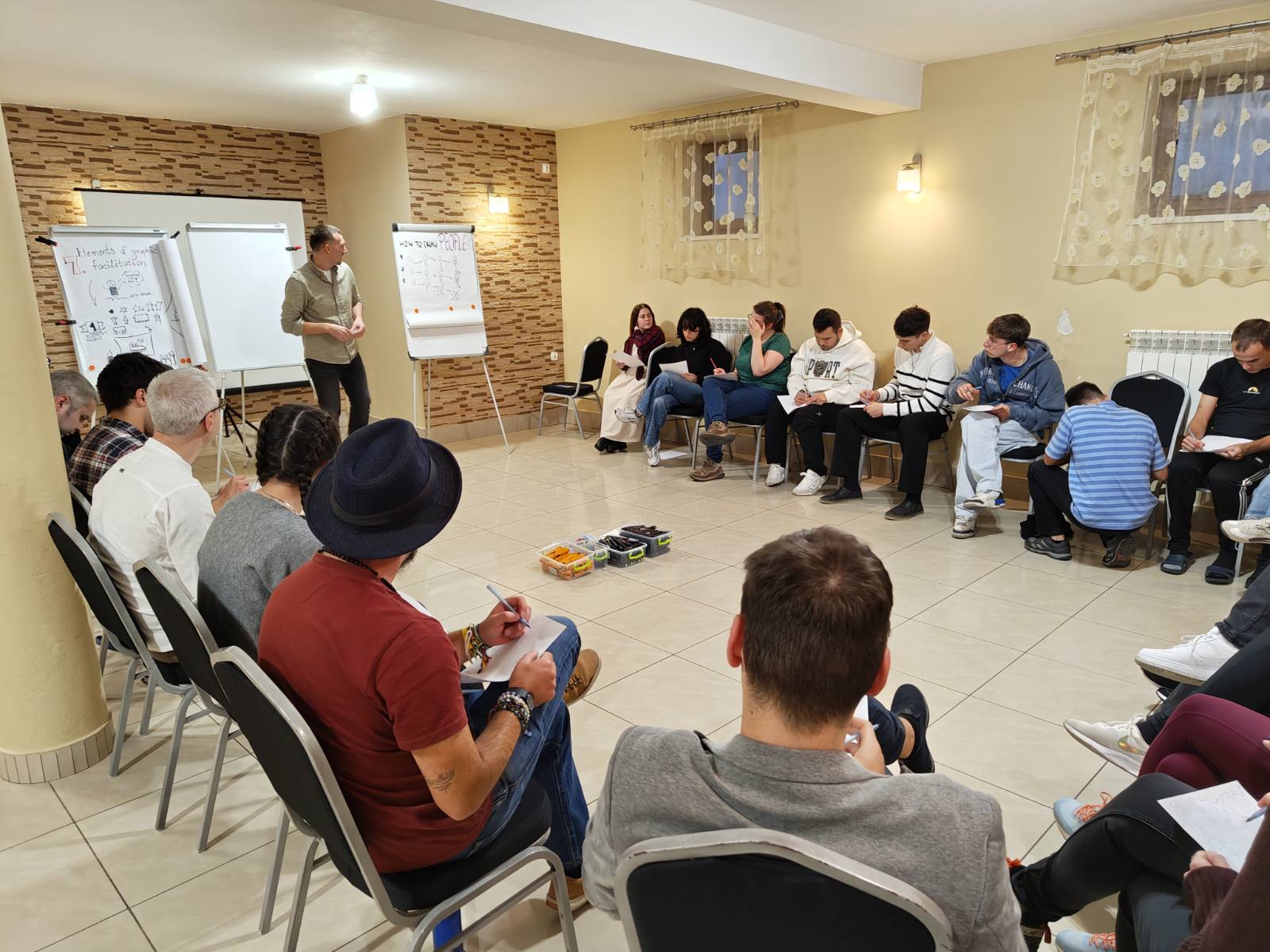Project “Visual Tools for Social Inclusion”
Members of the Youth Development Center – Mutual Aid participated in a training course for youth workers on the topic “Visual Tools for Social Inclusion.” It took place from October 19–26 in the village of Murzasichle, Poland, near the Zakopane ski resort. The project’s organizer was the Polish organization Stowarzyszenie “Aktywni Kreatywni” and was co-financed by the Erasmus+ program of the EU.
The training included representatives of youth organizations from Bulgaria, Turkey, Romania, Spain, Italy, Slovakia, the Czech Republic, Lithuania, and Poland. The trainers for the project were also multicultural: Marcin and Milena from Poland, Alexandru from Romania, and Aleksandras from Lithuania.
In an non-formal environment, participants had the opportunity to develop their soft skills in graphic facilitation and visual thinking, exploring the advantages of using visual elements in presentations.
In the second part of the project, participants also explored the possibilities of artificial intelligence (AI). can be defined as the ability of a machine to demonstrate human-like capabilities—to reason, learn, plan, and create. We speak of artificial intelligence when technical systems observe their surroundings, receive data (prepared by others or collected independently), process it, and perform actions to achieve specific goals.
AI systems can adapt their behavior to some extent by analyzing the results of previous actions and operating autonomously. Although some AI technologies have existed for more than 50 years, recent years have brought significant breakthroughs thanks to increased computing power, the availability of vast amounts of data, and the development of new algorithms. Forecasts suggest that artificial intelligence will bring about major changes—potentially even a complete digital transformation of society. Therefore, it has become a priority for the European Union.
Atanas Mitev

